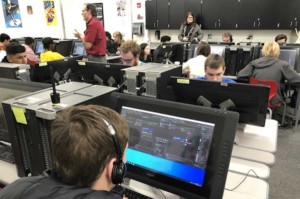How will the new world order be created?
I’m finding an increasing number of people that draw similar pictures of the future on the back of napkins over lunch. The piece parts usually include:
· A social learning platform with apps for content, classroom, schedule and learning management
· A vetted and organized body of open and premium content learning objects
· A recommendation engine that understands student learning level, interest, motivation, and modality (ie iTunes Genius + Wireless Gen’s Burst)
· Aligned support services for students, teachers, schools and networks
There are a couple organizations working on chunks of this future, but it’s likely to take serious coordinated investment of philanthropic and venture investment.







Tom Vander Ark
Note from a friend, "enjoyed your recent blog post about creating the 'new world order.' Right, as you note, the theoretical construct is coming together from a number of different perspectives. And yet, the paradox is that the future is very unevenly distributed and things could easily be the exact same ten years from now. So the key is to identify the necessary precursors and begin to put those into place. And, make sure that the current investments help provide the path from here to there. So, for instance, data systems need to have not only a longitudinal focus at the state level, but real-time, very granular information that informs action at the student level and enables the aligned teams of support to communicate and coordinate activities. You also need much more granular assessment tools and the data from these tools. You need much better cognitive research to inform both. And, you need a policy path that balances accountability needs but also provides a
path/incentives for these new things to get tried out, improved, scaled, etc. To the point you've made, that will likely require different metrics than we have now."